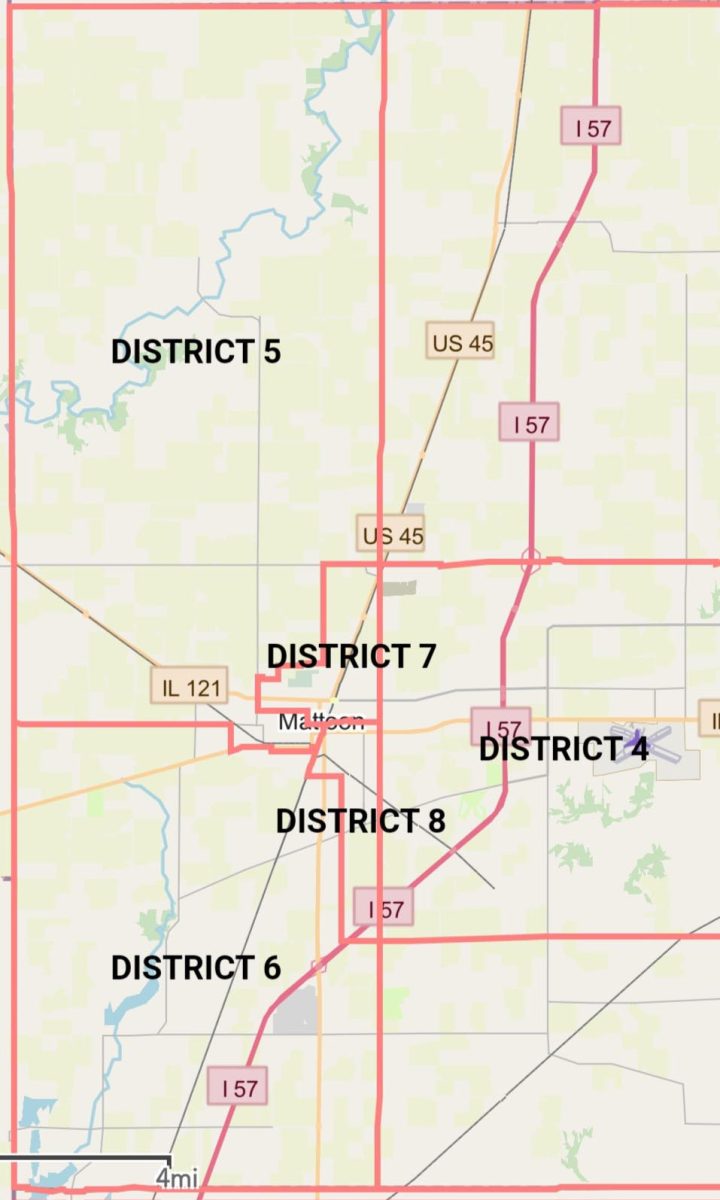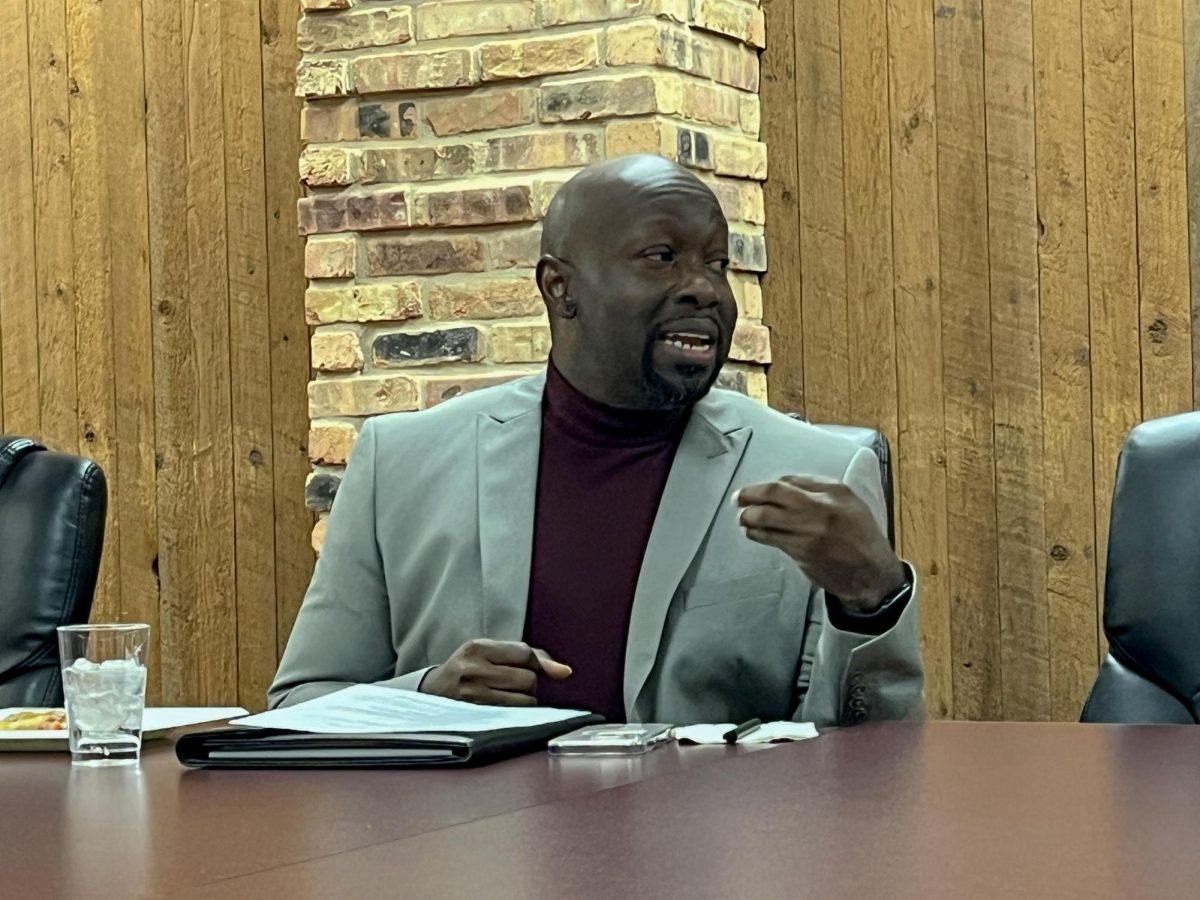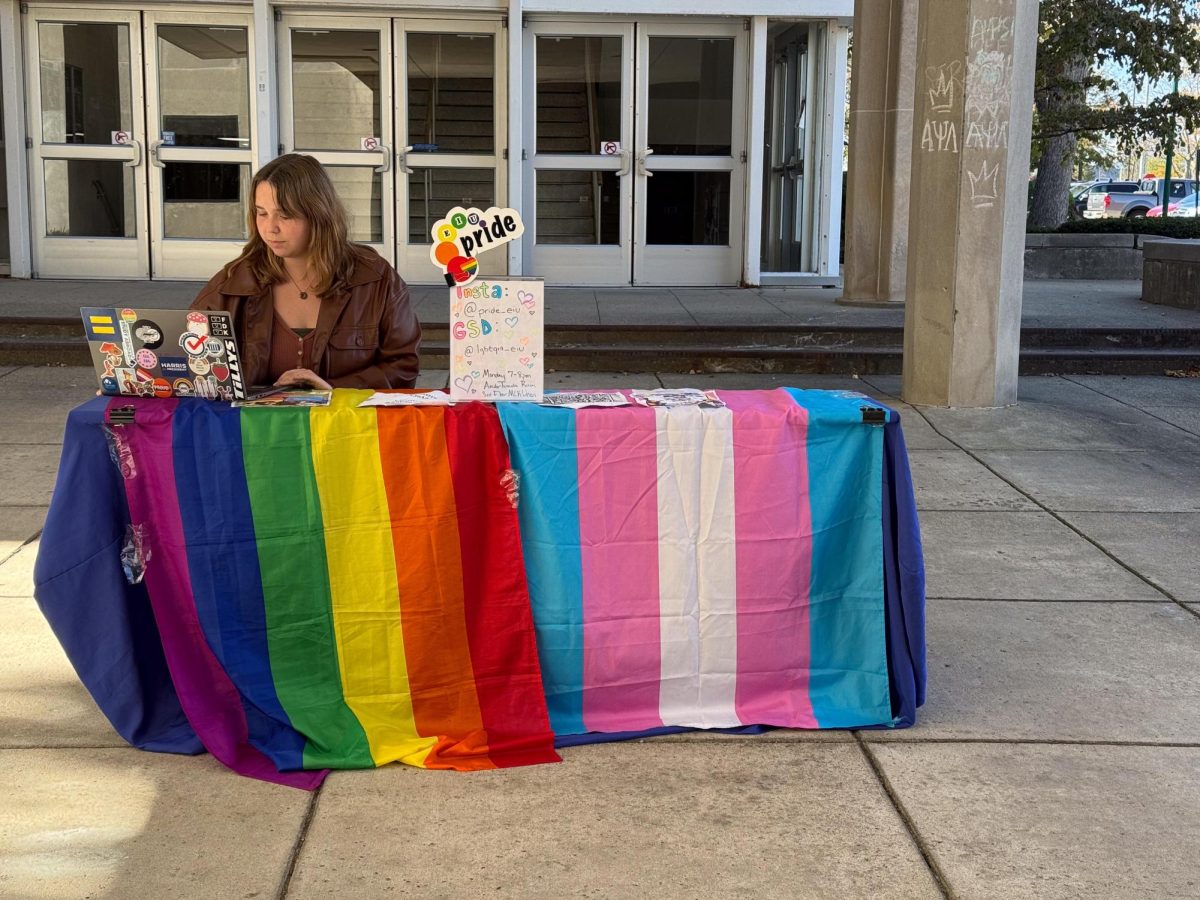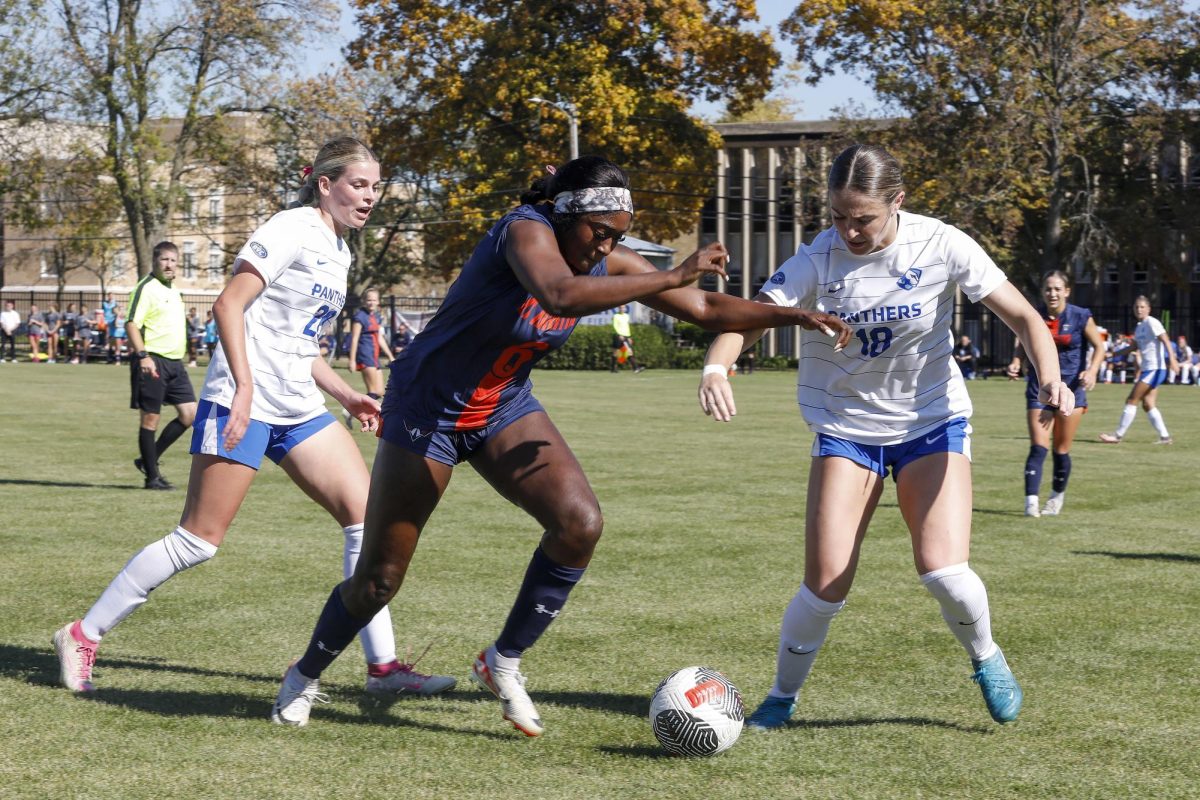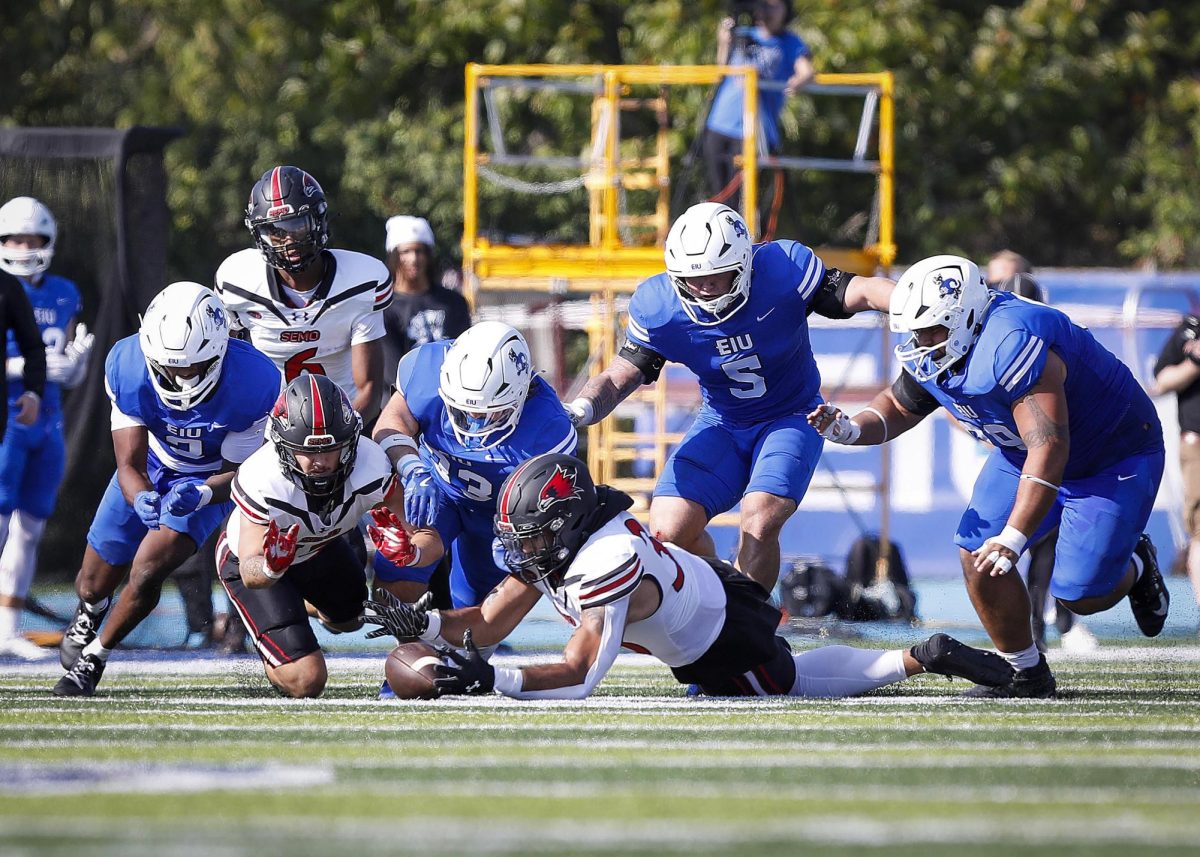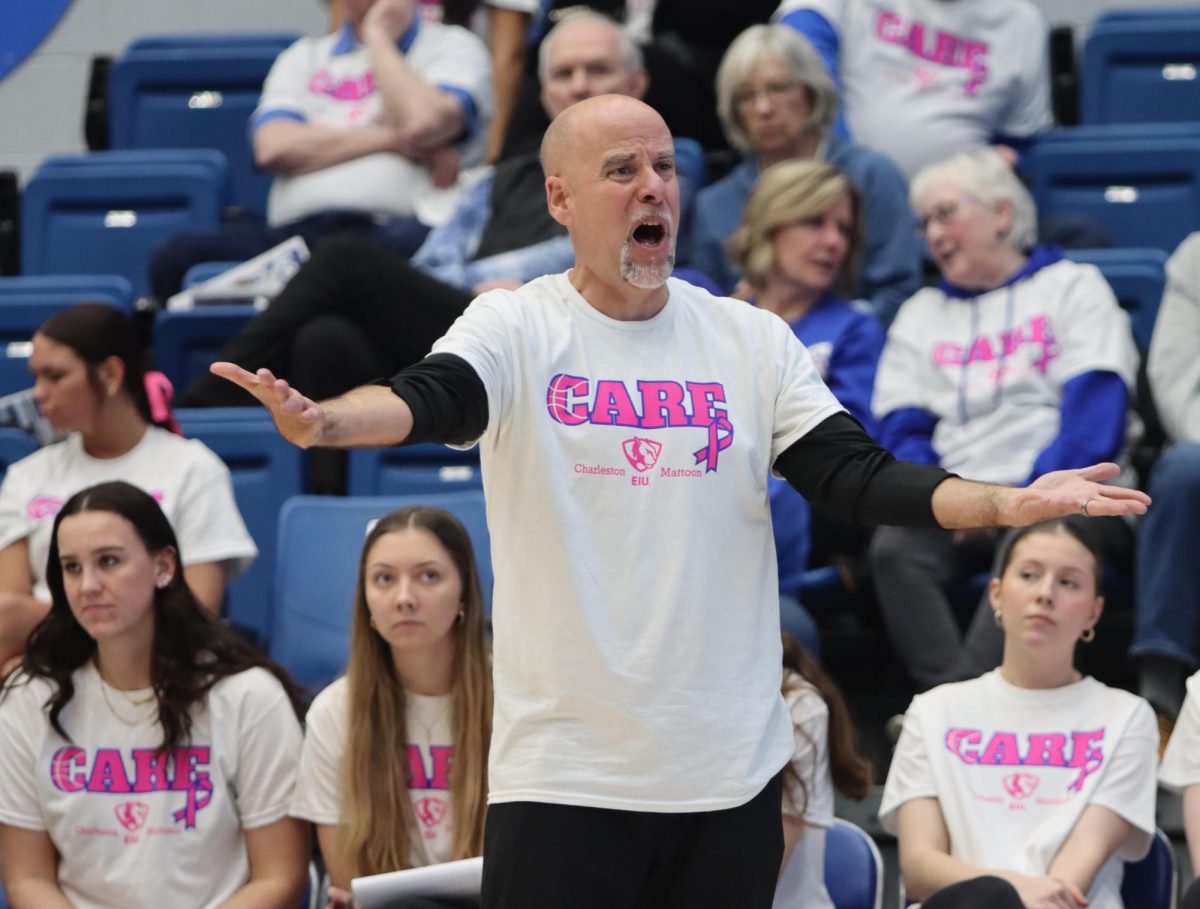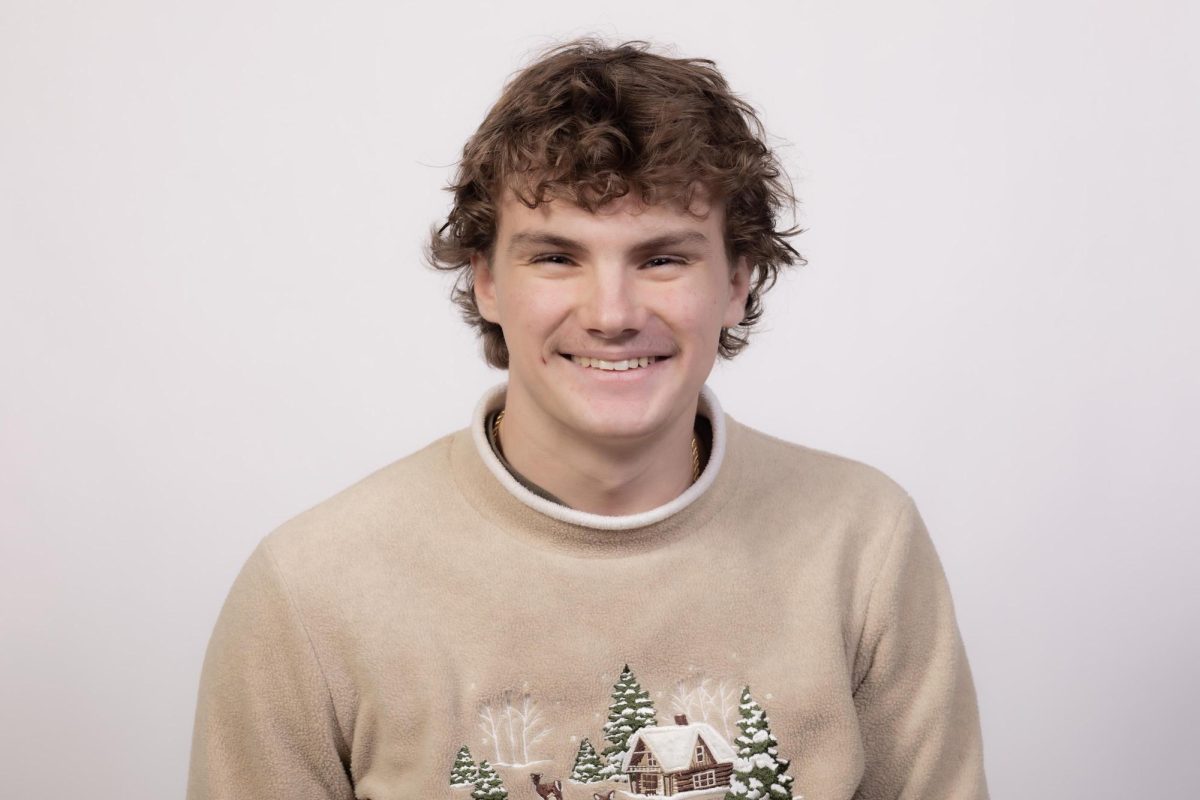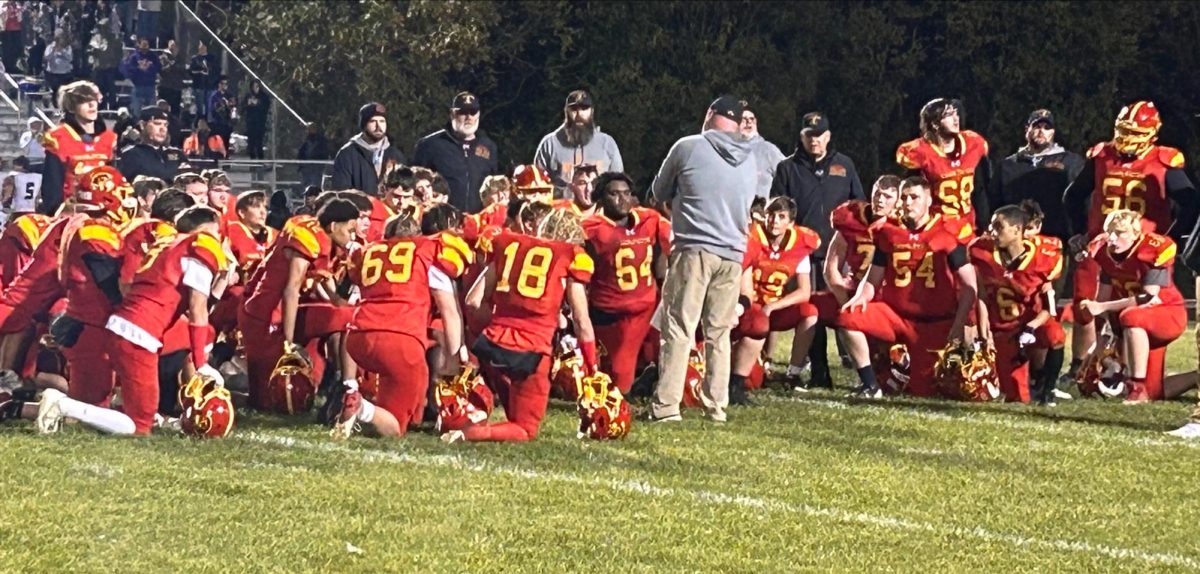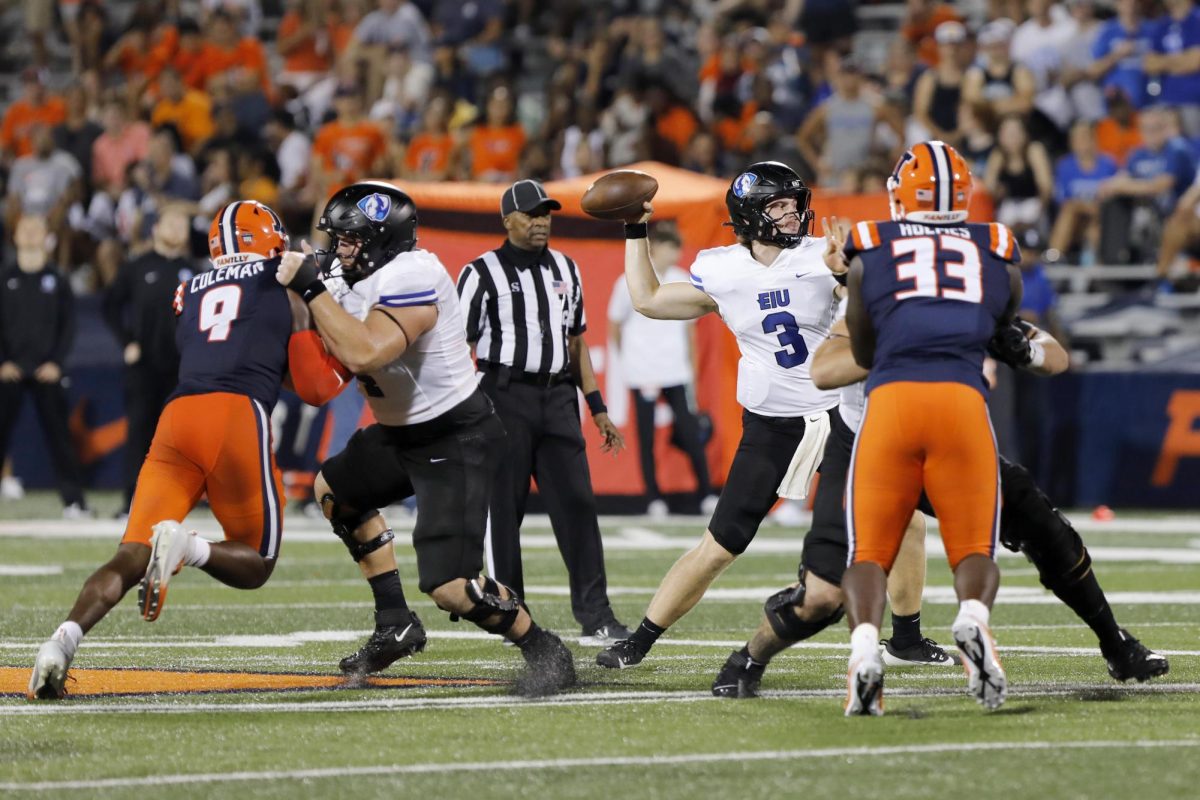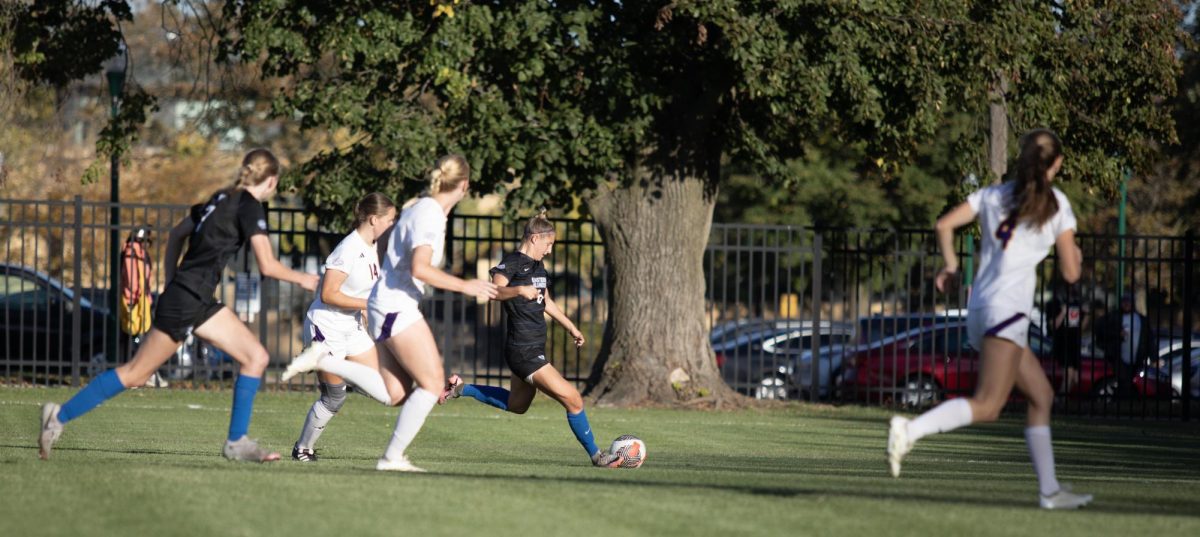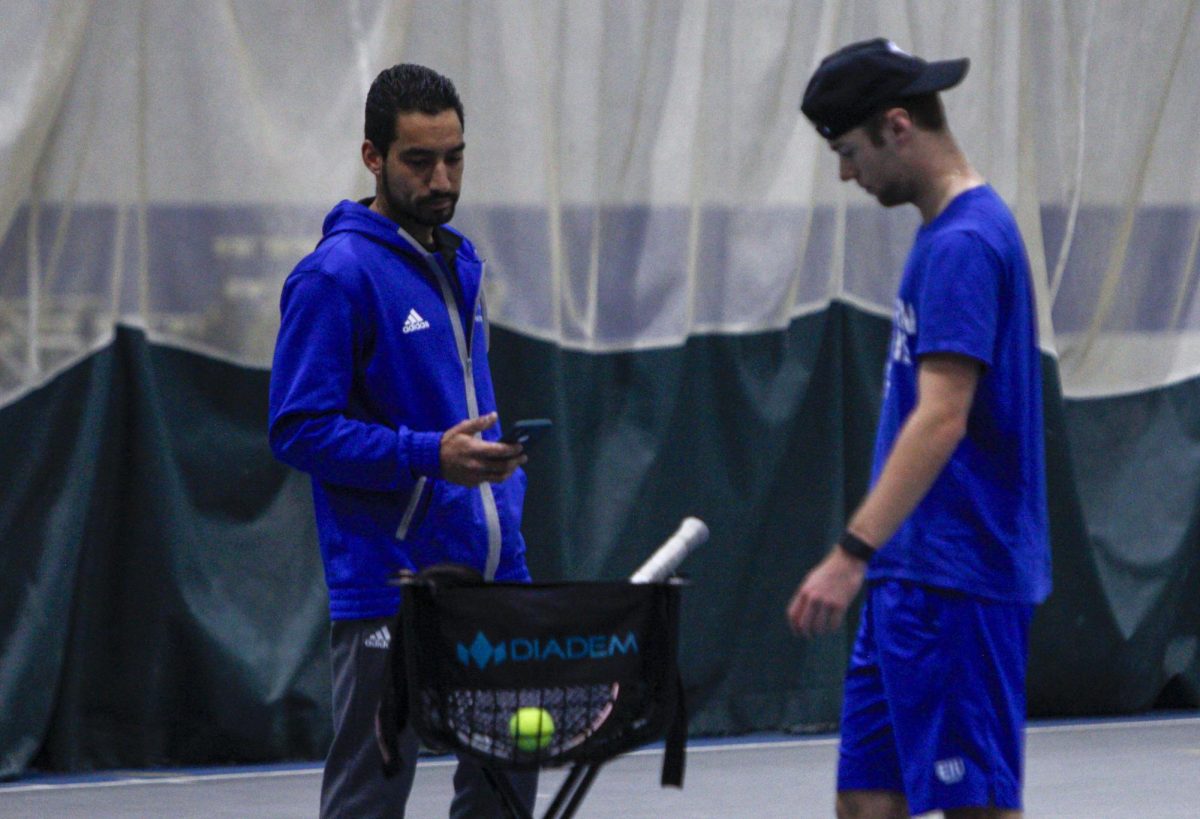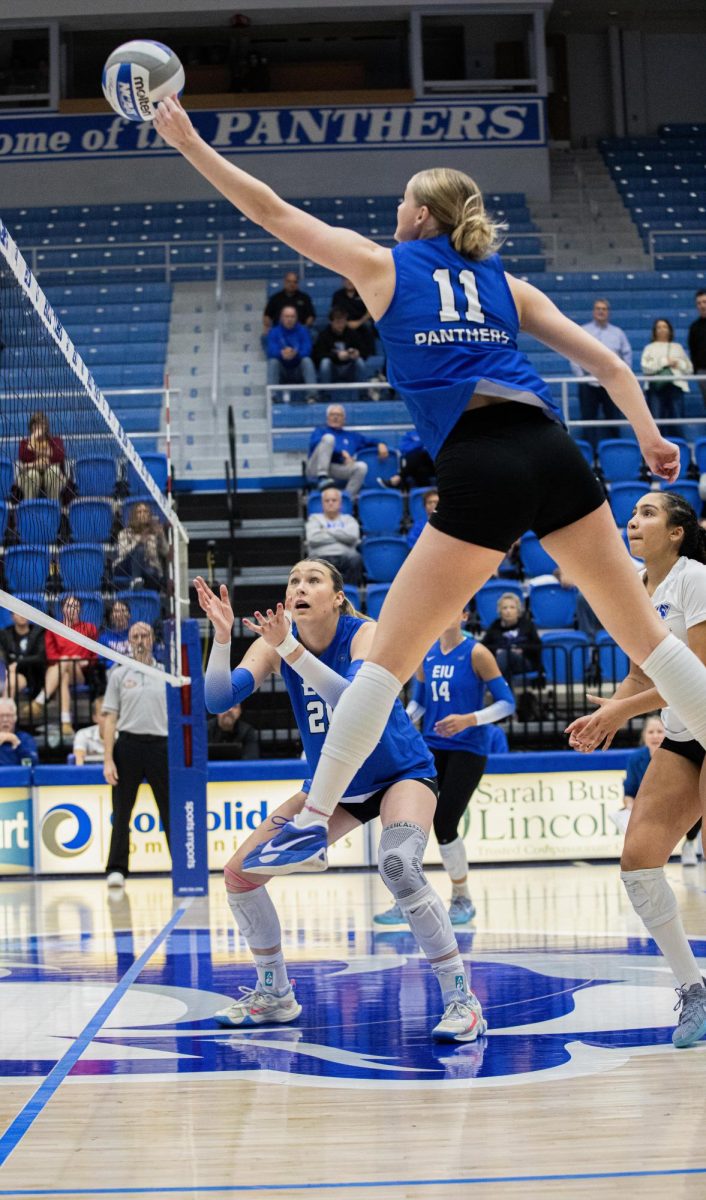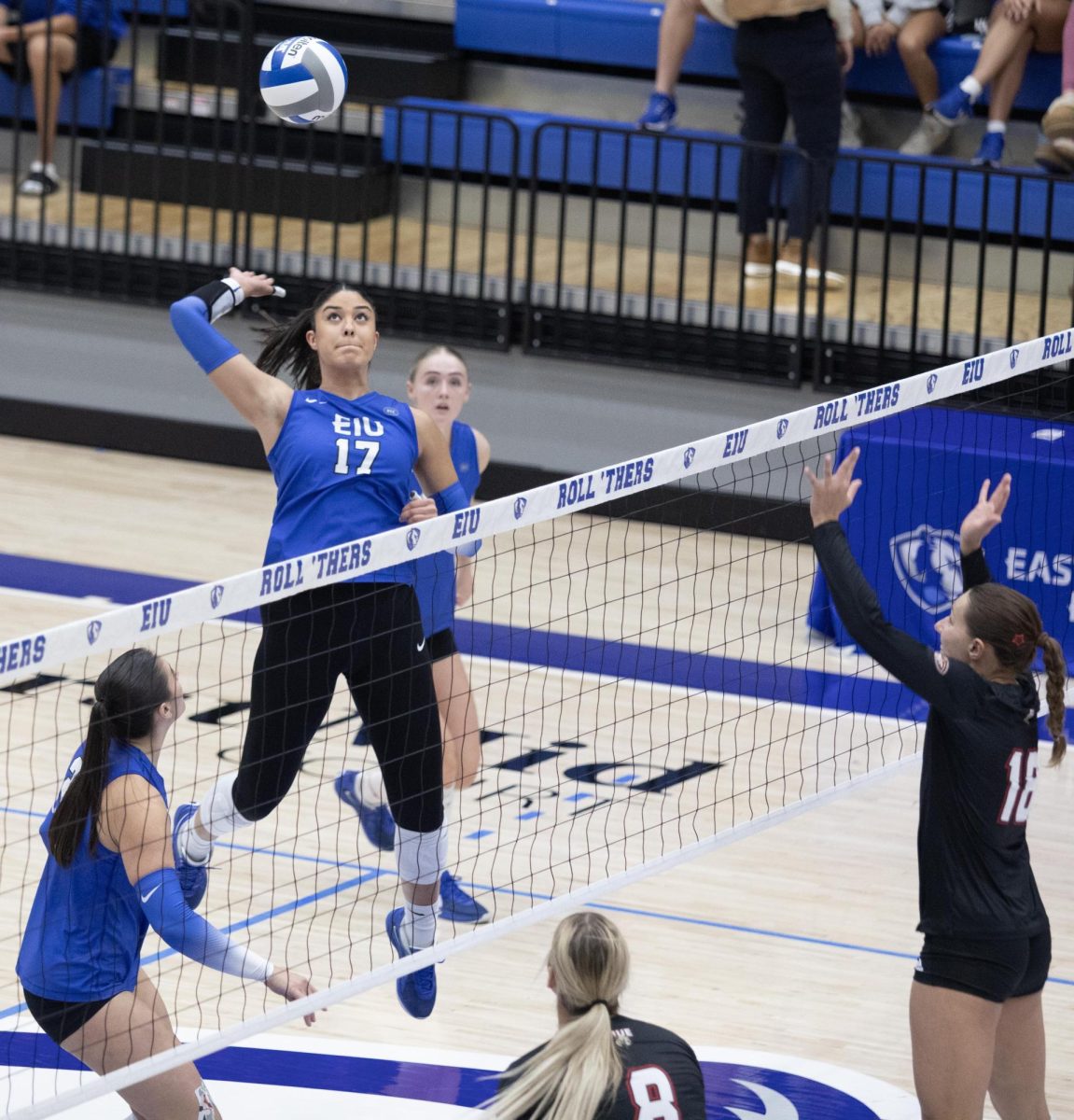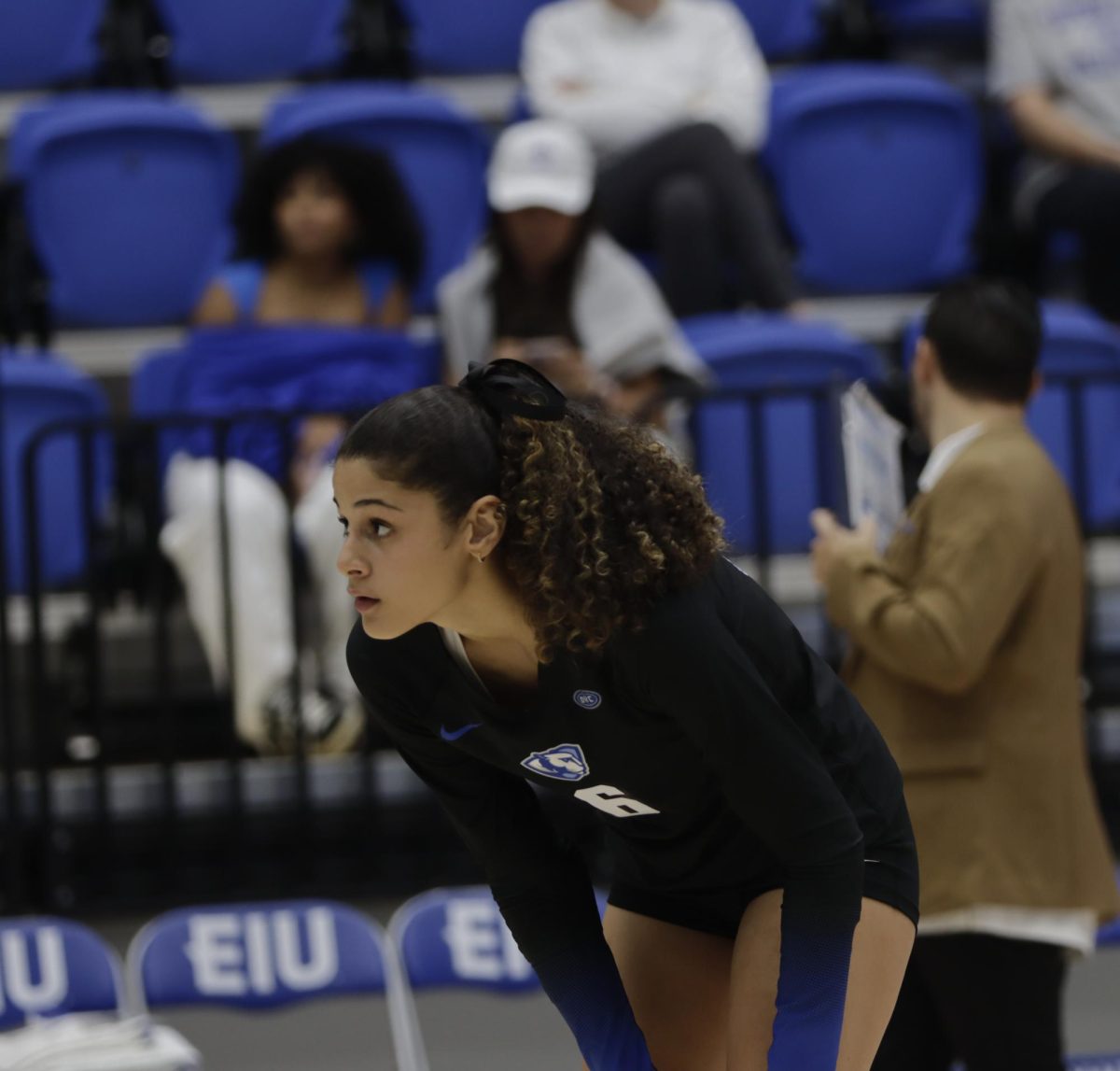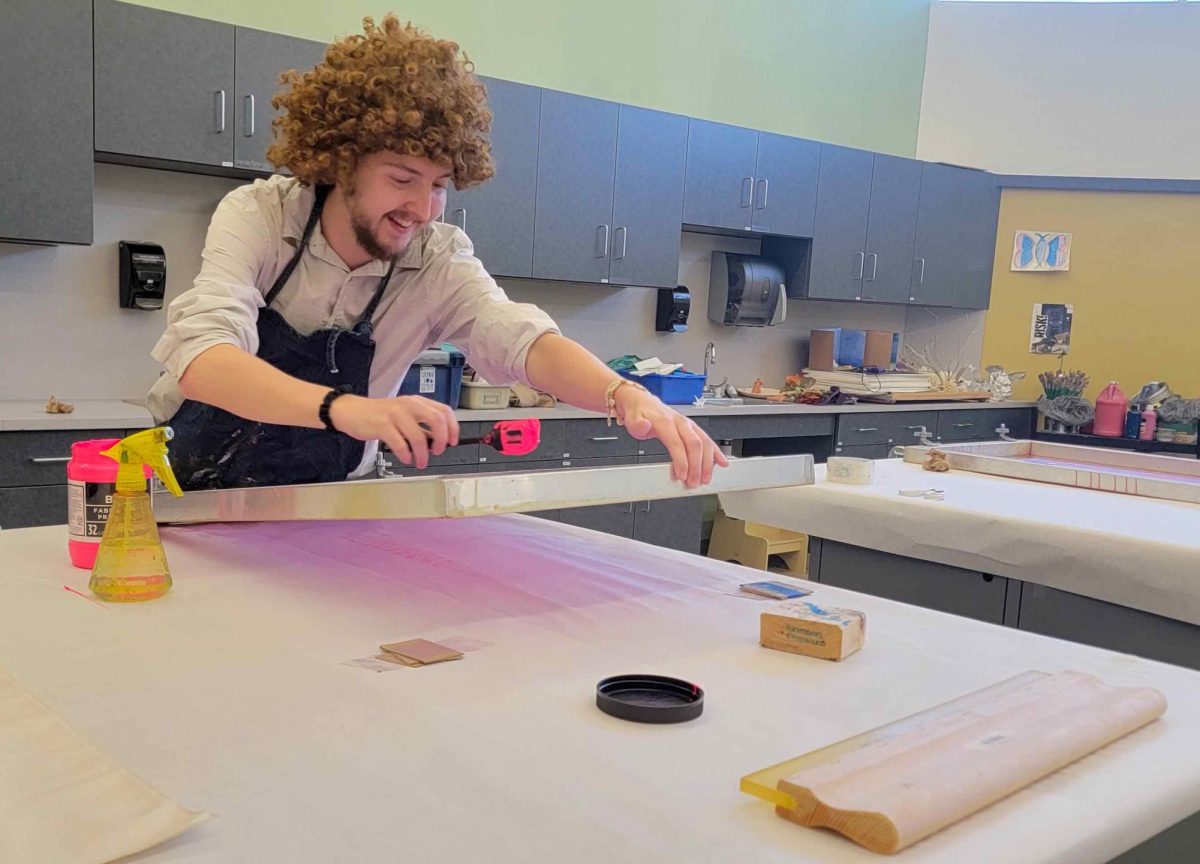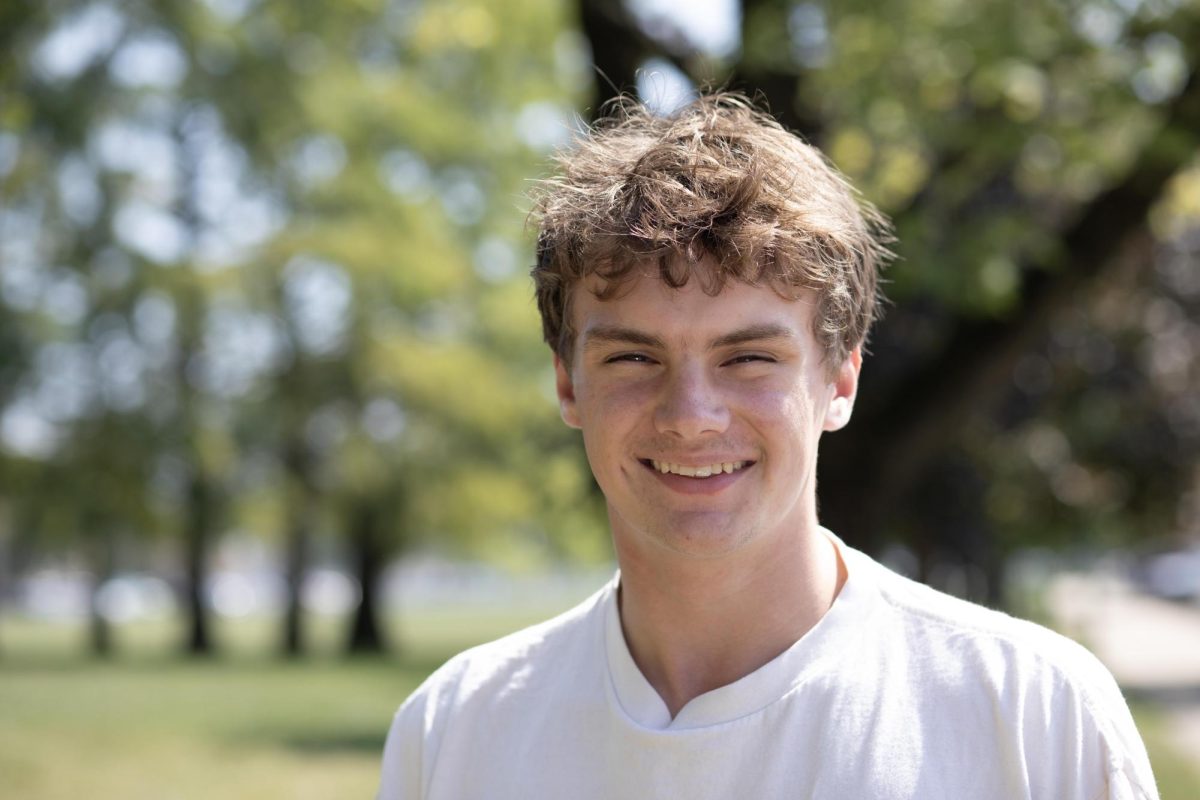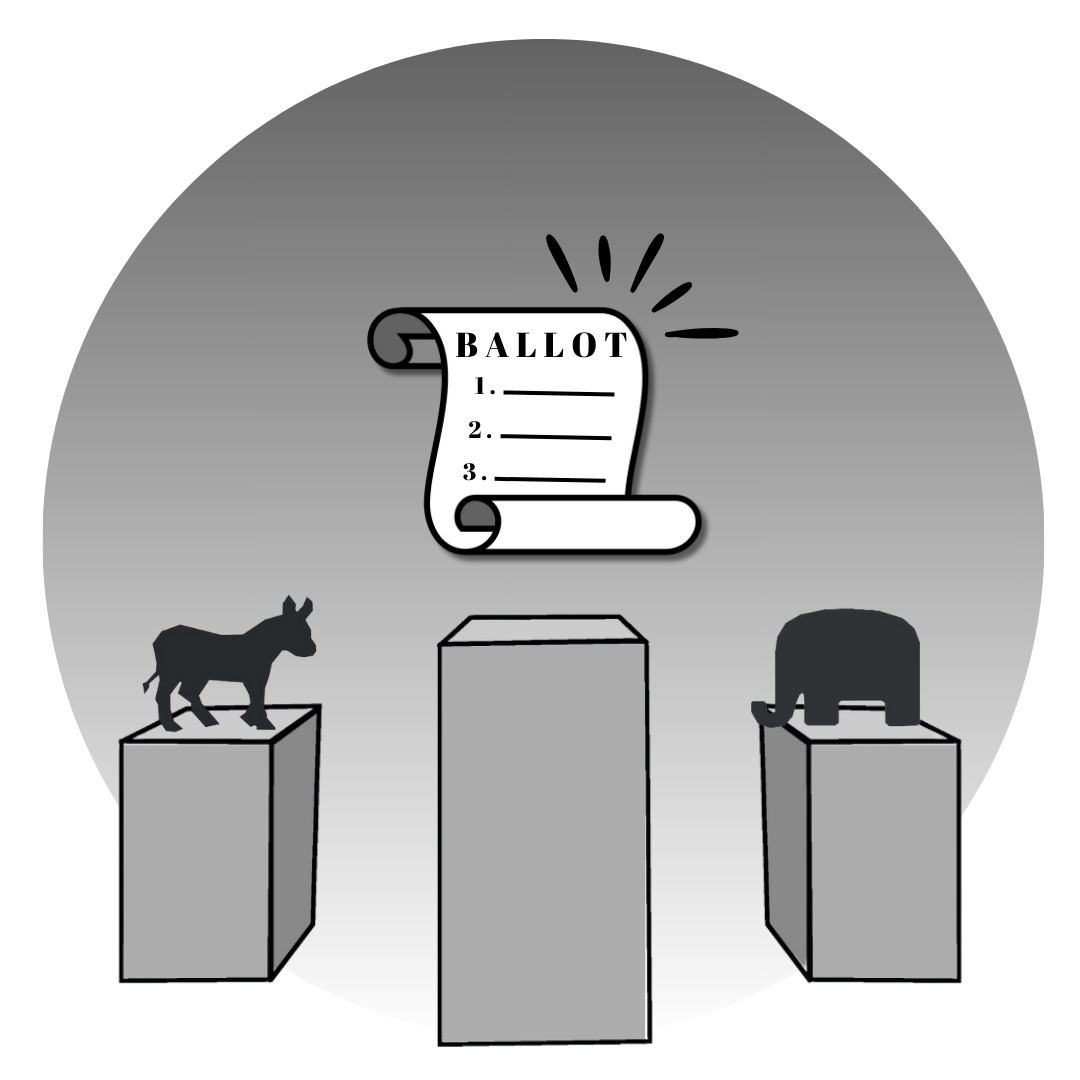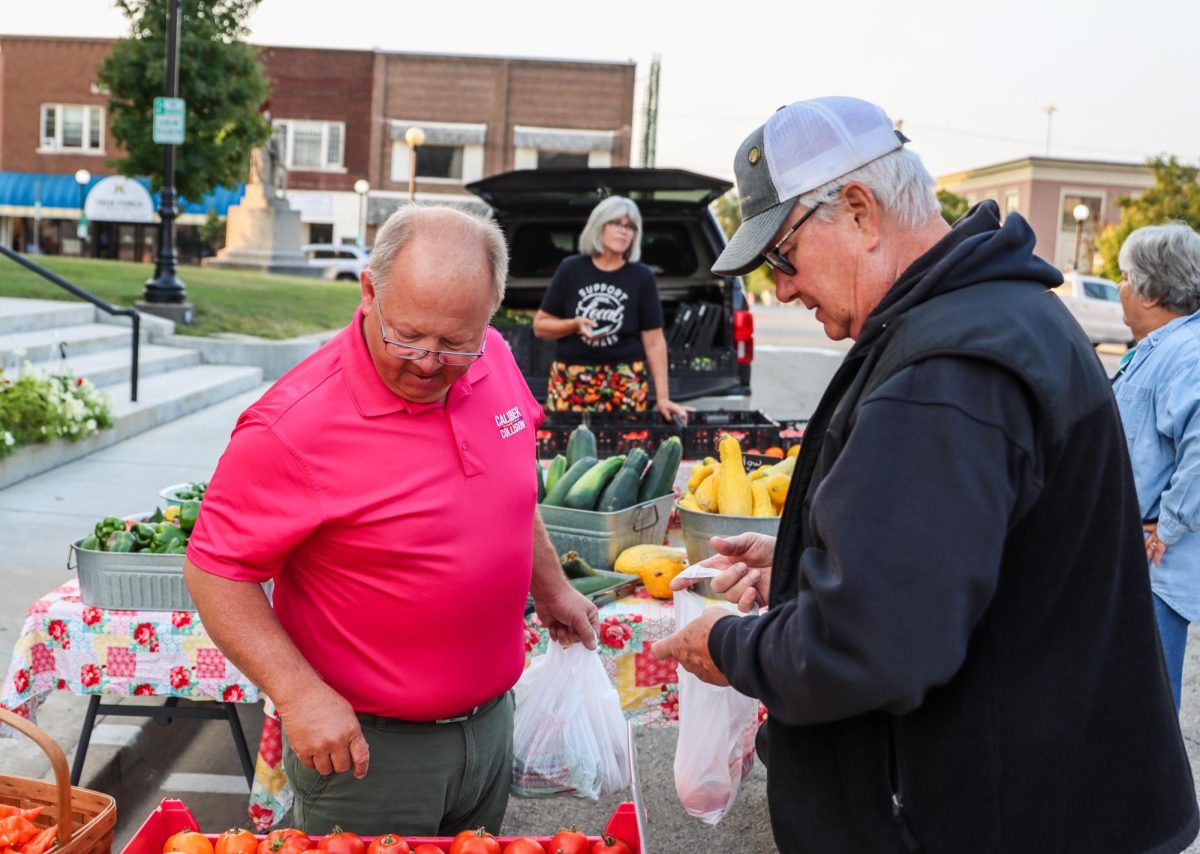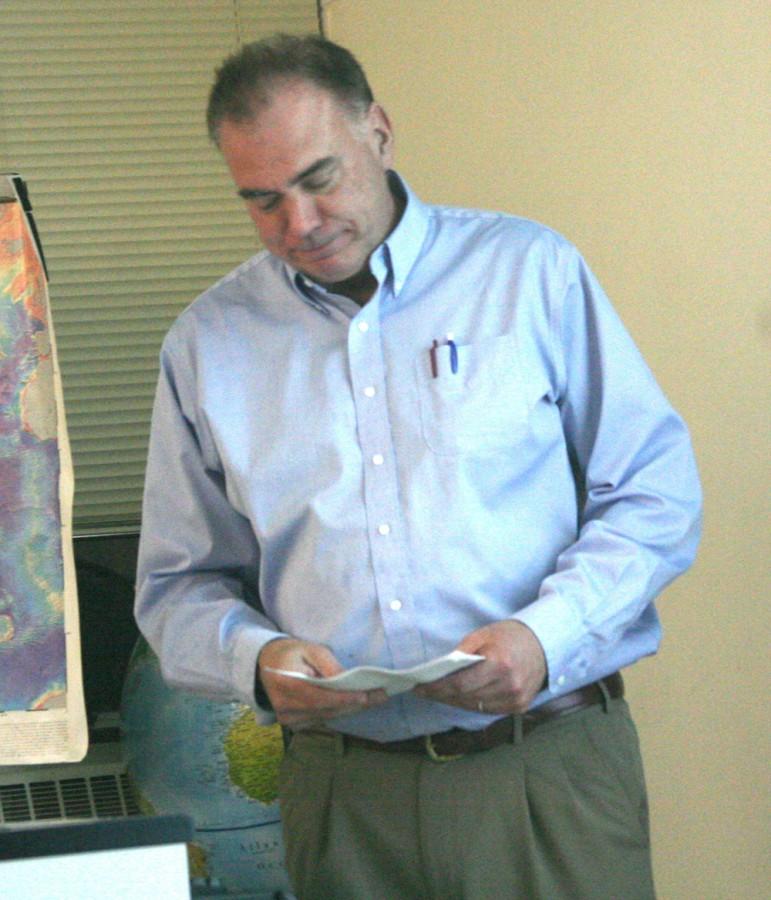Retired NIU professor brings geography knowledge to Eastern
Dr. Richard Greene, from Northern Illinois University, presents his power point on agriculture land conversion along urban/rural gradients for Geographic Awareness Week.
November 19, 2014
The geography department continued National Geography Awareness Week with a presentation on “Agricultural Land Conversion along Urban/Rural Gradients of Midwestern Cities: Debating Sprawl, Food Security and Sustainable Cities” in the Physical Science Building on Tuesday.
Richard Greene, a retired geography professor at Northern Illinois University, introduced his lecture with some background information on what urban sprawl means.
Farmland in western areas decreased in production, but is being replaced in other places, Greene said. The demand for corn is on the rise, pressuring the Great Planes to produce more, he said.
Greene talked about the American Farmland Trust, which he is involved in, along with farmers who are trying to find ways to help increase farmland production.
Their study has reviewed the replacing of rangeland with cropland.
The farmland is being replaced because of the rise in urban development, Greene said. Its connection with Chicago is the housing density, which will have a positive or negative value on farming lands, he said.
Greene connection his lecture to food security with optimistic scenario compared to a pessimistic scenario.
An optimistic scenario in food production is sufficient in urbanizing population, Greene said.
In the optimistic scenario, people believe that crops like corn, wheat and rice are increasing with population in most regions except for Africa.
On the pessimistic side, urbanization is pushing farming off of production land and onto marginal lands, Greene said.
Greene said people in this scenario believe that production is less sustainable. Greene did not pick a side in the scenario, but encouraged debate on each side at the end.
Maddie Schutz, a senior geography major, attended the lecture. Schultz said she sees a change in some of Illinois’ areas once considered “urban.”
“Rural areas are becoming urban, like Champaign for example,” she said.
Breana Calhou can be reached at 581-2812 or bdcalhou@eiu.edu.



